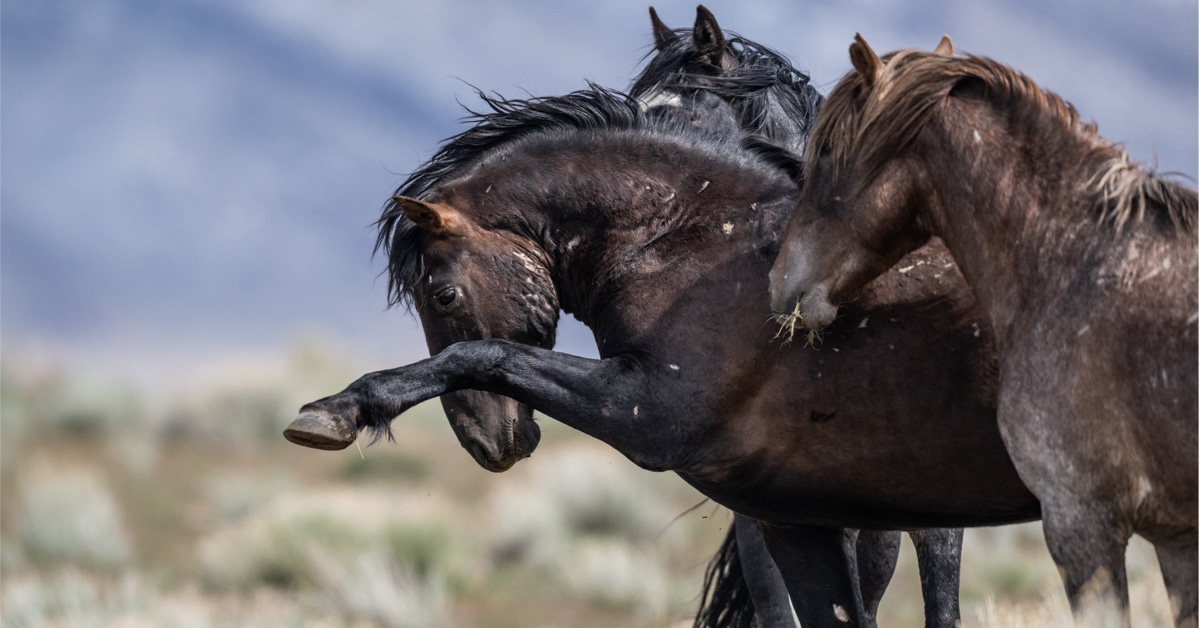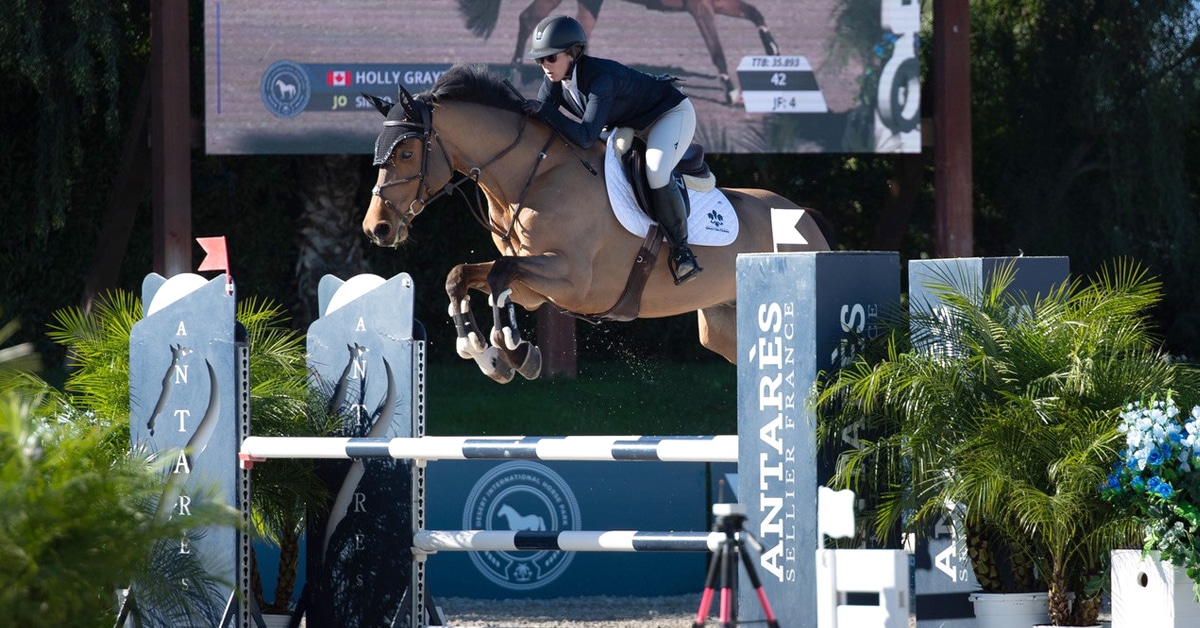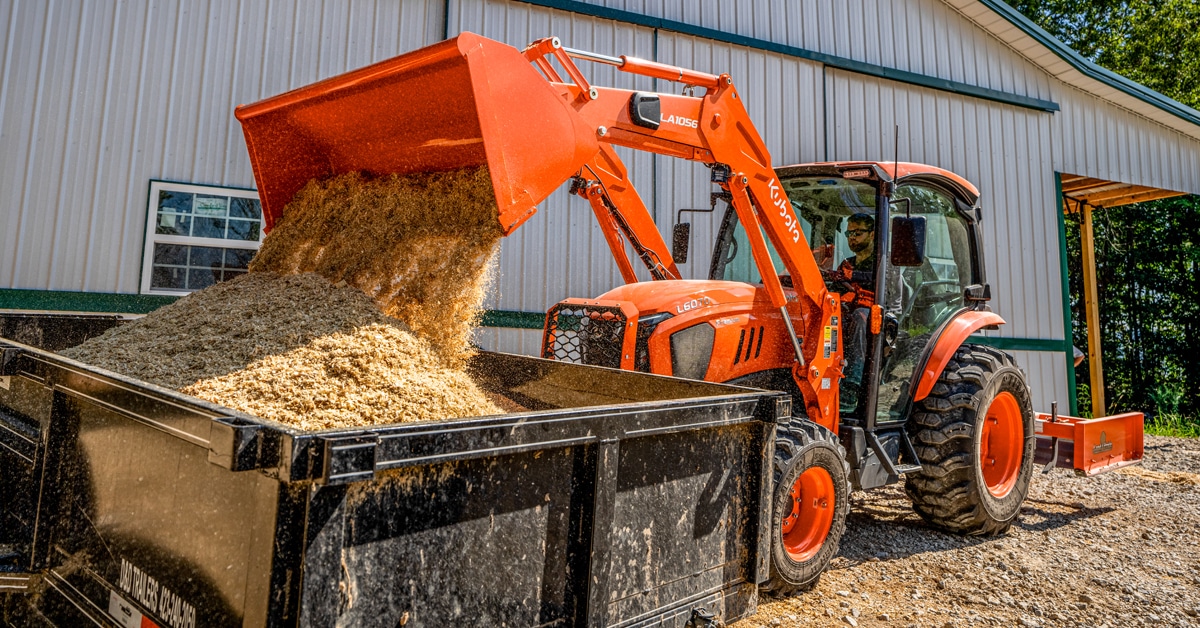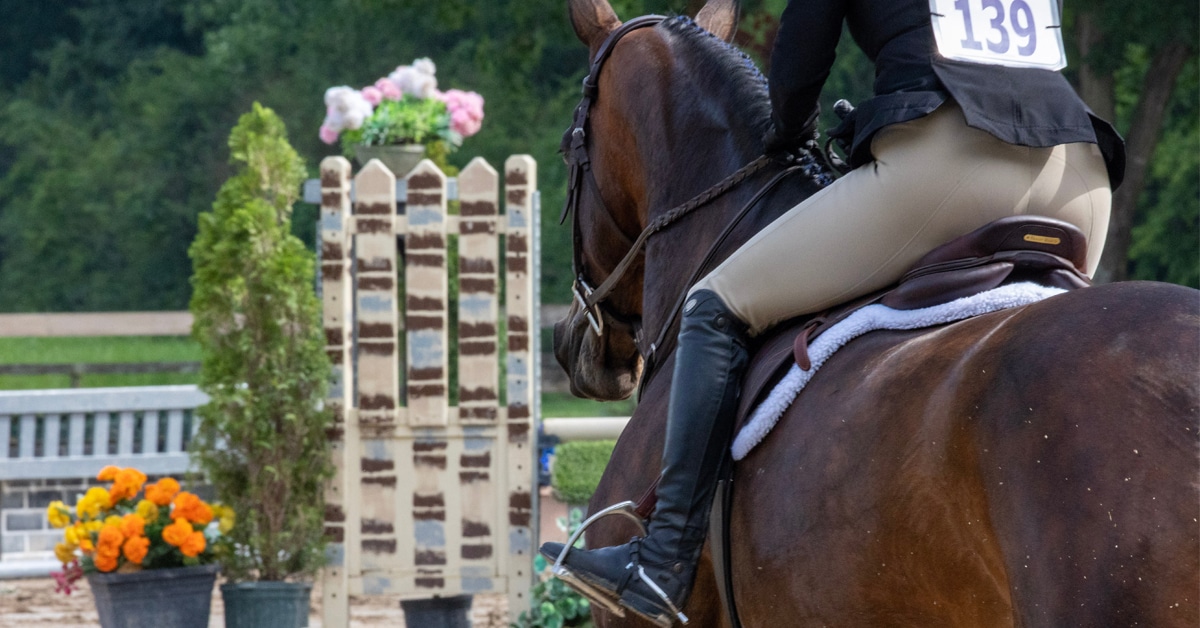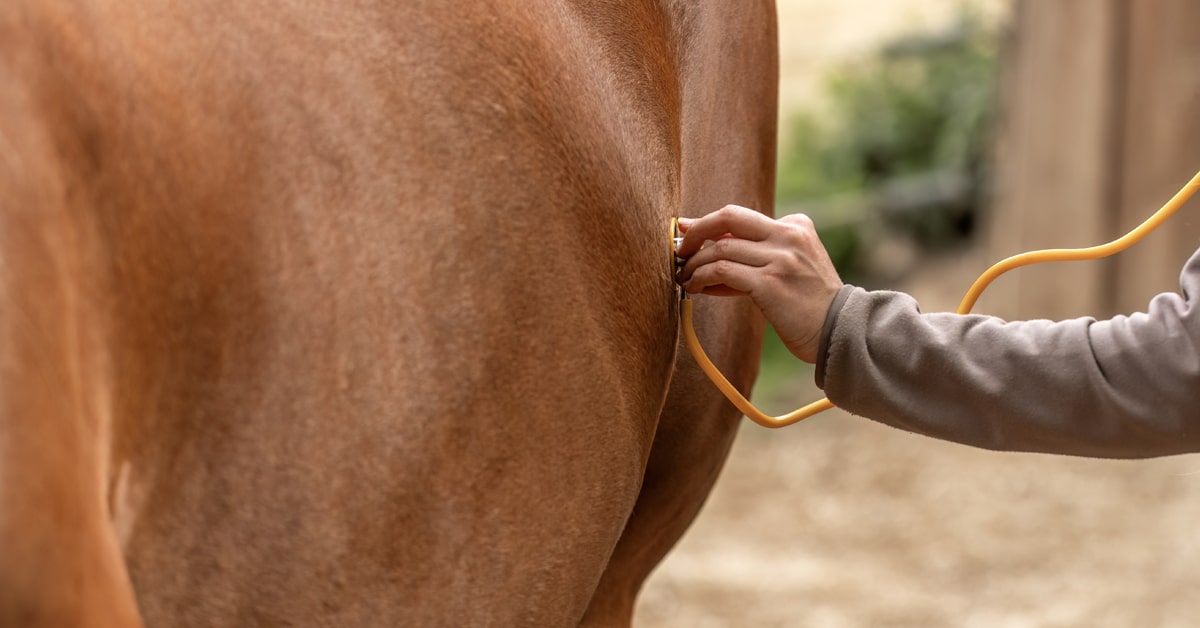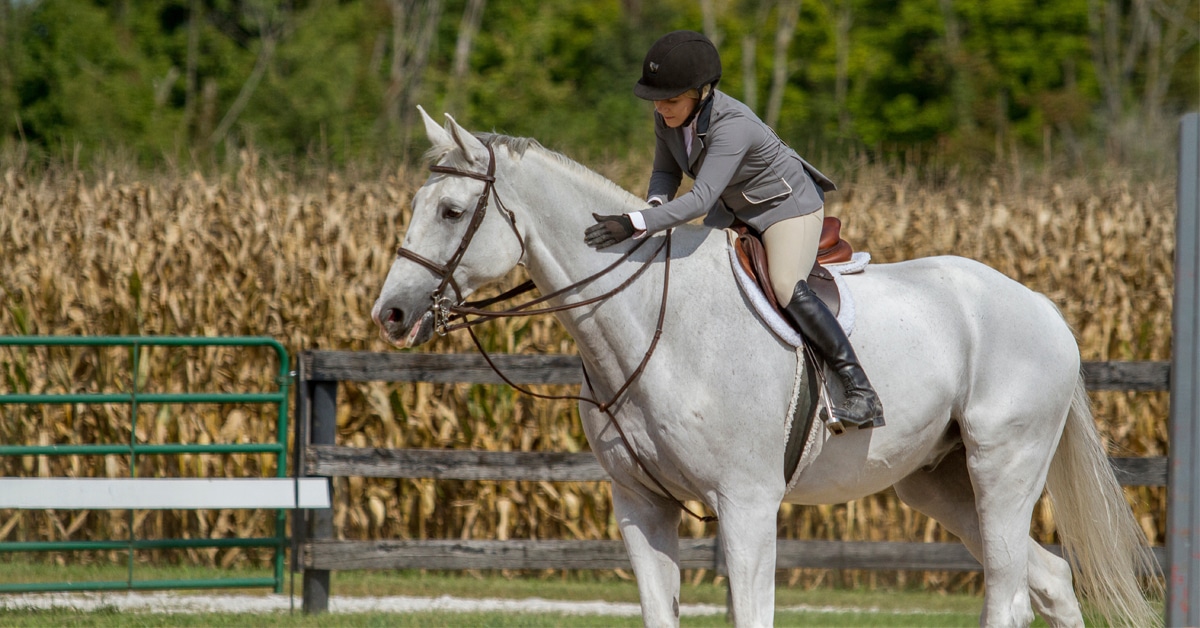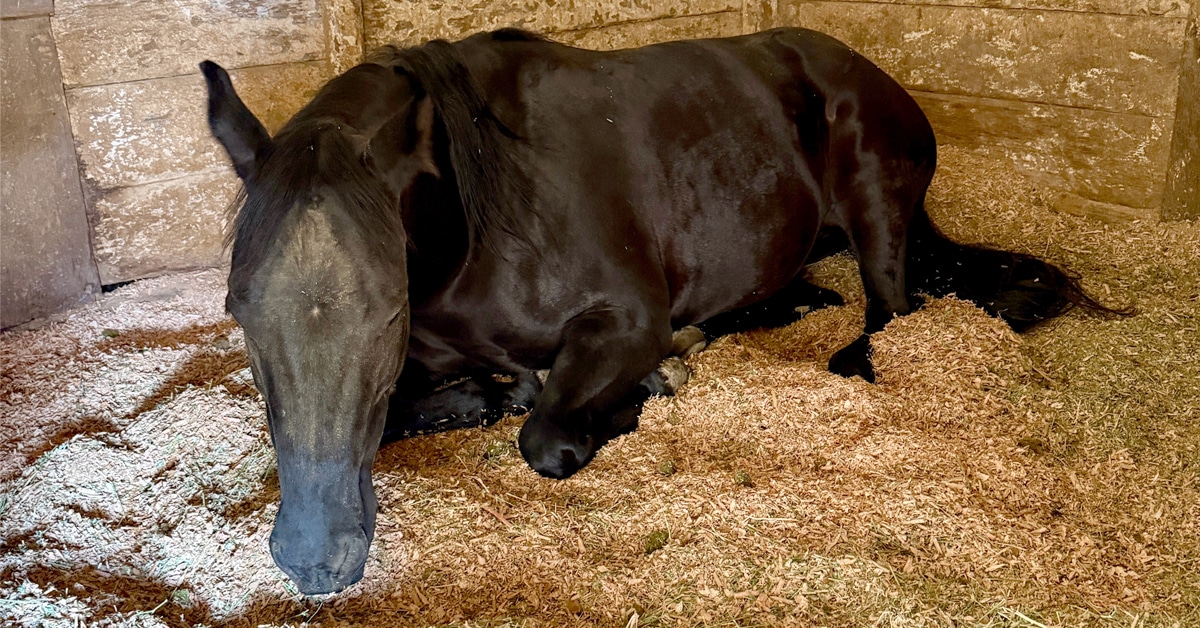Miniature horses are built exactly like their full-sized fellow equines, but along with their small stature come some health problems seen less often in larger equines.
Similar to dog breeds that have been selectively bred for their appearance, years of breeding horses for small size has inadvertently made minis much more susceptible to conditions that can affect them throughout their lives. The two main condition categories are congenital and acquired. A congenital disorder means the animal is born with the problem, whereas acquired means the problem arises after the animal has been born.
Born That Way
For example, in the first category, Miniature horses are more often affected by congenital angular limb deformities than normal-sized horses. Angular limb deformities occur when the leg deviates from its normal axis (is crooked). Depending on the severity of the deformity, corrective shoeing can sometimes fix the problem. If unsuccessful, surgery is required to encourage the bone to grow straighter. It is important to speak to your vet sooner rather than later if you see your Miniature foal with a leg that does not look normal.
Another congenital problem found in minis is patellar luxation. This is where the kneecap dislocates due to the malformation of grooves in the femur and tibia. This problem also occurs in small dogs such as Chihuahuas and Yorkshire Terriers. Surgical corrections to deepen the grooves in the hind leg bones can help this condition and will hopefully allow the Miniature horse to have a normal life.
Other types of congenitial bone malformations include those located in the jaw. Minis can have an overbite or an underbite, both of which require extensive and frequent dental care to enable proper chewing and digestive processes. Improper breakdown of fibre in hay and forage can lead to episodes of choke and impactions within the lower GI tract.
One of the reasons minis are so adorable is because they have large personalities packed into small bodies. Their heads are no exception to the size rule, and the shortened jaw doesn’t always allow enough room for all their teeth to fit comfortably. Overcrowded teeth can cause issues with chewing and can also lead to sinusitis. This situation occurs because the horse’s upper tooth roots reside in their sinus cavities in their skull, and when the teeth are disproportionate to the size of the sinuses, there isn’t as much room for clearance of normal fluid drainage from the sinuses. This traps bacteria within the sinus, which multiply and cause infection, pain, and chronic nasal discharge. Diagnosis of these issues is usually accomplished by radiographs and may require removal of the offending teeth or creating surgical bone flaps over the sinus to flush out infection.
Adult Woes
Minis can also have acquired health issues. A common one is fecoliths – rock-like manure impactions caused by poor chewing, eating poor-quality feed, or eating foreign materials. These fecoliths normally develop within the small colon and can occasionally pass with medical colic management, but often require surgery.
Another acquired condition that minis face is obesity. Because they are so small in stature and don’t often have an athletic career, it is very easy to overfeed them. Minis are very good at utilizing calories and most don’t need any sort of grain to provide appropriate caloric intake. Obesity can lead to increased incidences of insulin resistance, equine metabolic syndrome, and laminitis.
Feeding hay at 1.5-2% body weight is ideal to keep your mini at an acceptable body weight. Another way that you can control how much your mini eats (especially if out on pasture) is through a grazing muzzle. These muzzles limit the amount of grass or hay ingested, therefore limiting caloric intake.
Miniature horses store fat very easily. If they stop eating due to sickness, limited access to food, lactation, or pregnancy, their body quickly responds by mobilizing the fat stores to provide energy and nutrition. Unfortunately, this often leads to “fatty liver disease” where the mobilization of fat is too much for the liver to handle and it becomes swollen, resulting in reduced function. Horses require a properly-functioning liver to help maintain correct water balance, metabolism, and clearance of waste throughout the body. A liver that is not functioning properly can result in grave sickness and even death.
Signs of fatty liver disease are increased unwillingness to eat, fever, signs of colic/abdominal pain, jaundice (yellow mucous membranes), diarrhea, and abnormal behaviour such as head pressing or circling. Mortality rates range from 60-100% with this disease and clinical signs can start to occur after just 24 hours of inappetance. It is very important to let your vet know immediately if you see any of these clinical signs, as quick intervention is key to survival.
Another problem that is often seen in minis occurs during birth. Dystocia, or obstructed labour, occurs in minis due to the discrepancy of the size of the mother’s pelvic canal and the fetal head size (Miniature horse’s heads are proportionately shorter and wider than their normal-sized cousins). A caesarean section is often required to save both mother and baby in this situation. Horses are only meant to be in active labour for 30 minutes, so if you notice the mare having trouble giving birth, a quick reaction time is essential to deliver a healthy foal.
Miniature horses make wonderful companions and are always a source of entertainment. Being aware of the potential health issues they can face, and recognizing these problems quickly, can ensure your Miniature horse lives a long and healthy life.
The Latest

